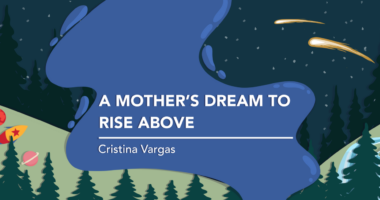Abeona Will Give Update on Its Gene Therapy Programs in R&D Day Set for October

Abeona Therapeutics will host an inaugural Research and Development (R&D) Day in New York City in October, briefing investors on its progress in developing gene therapies for rare diseases, including two for Batten disease.
The R&D Day program and video webcast, set for on Wednesday, Oct. 11, will begin at 9:00 and wrap up at 1:00 pm.
“We are excited to celebrate Abeona’s first R&D day this fall and update our stakeholders on the significant progress made in our clinical stage gene therapy programs for ABO-102 and EB-101, as well as provide a review of the progress made on the IND-enabling studies for our juvenile (CLN3) and infantile (CLN1) Batten programs,” Timothy J. Miller, the company’s president and CEO, said in a press release. “Additionally, we plan to provide details on our manufacturing strategy for both the EB-101 program and our multiple AAV gene therapy programs.”
Two potential therapies — ABO-201 for juvenile Batten disease and ABO-202 for infantile Batten disease — are currently advancing in preclinical studies. ABO-201, which targets mutations in the CLN3 gene, has been designated an orphan drug by the U.S. Food and Drug Administration (FDA) and a first clinical trial in patients is being prepared. Plans are also in the works to begin trials in patients with ABO-202, targeting the CLN1 gene. The status of both programs will be among topics addressed in the October program.
A rare disease, of which there are nearly 7,000, is defined as one affecting fewer than 200,000 people in the United States. More than 25 million Americans and 30 million Europeans today have a rare disease, the release notes.
Often poorly diagnosed, rare diseases are typically complex, and either have no or few effective treatments. Abeona notes that more than 95 percent of rare diseases are currently without an FDA- or European Medicines Agency (EMA)-approved therapy. Most are genetic in origin and about 50 percent affect children; in fact, these diseases account for roughly 35 percent of deaths in first year of life.
Advances in genetics and biotechnology combined with new approaches and collaborative among researchers, industry, regulators and patient groups, are providing significant opportunities for breakthrough in developing treatments for these diseases, Abeona says in its release. Its gene therapy programs particularly aim at diseases caused by a single genetic defect, that might be treated by delivering the correct copy of DNA into a patient’s cells.
Abeona’s R&D Day program will feature presentations by senior company management, clinical investigators and key opinion leaders.
There will also be an update on Abeona’s manufacturing strategy, plans, and progress in development of its clinical and commercial grade production facility, and detailed discussion on development of its proprietary vector platform AIM, being developed in collaboration with the University of North Carolina at Chapel Hill, a next generation AAV (adeno-associated virus). AIM is reported by the company to be capable of widespread central nervous system gene transfer.
“We are pleased with the progress in our ongoing scientific collaboration with UNC on the next generation AIM chimeric AAV vectors, ” said Steven H. Rouhandeh, Abeona’s executive chairman. “We look forward to developing the AIM chimeric AAV vectors both internally and through strategic partnering efforts.”





